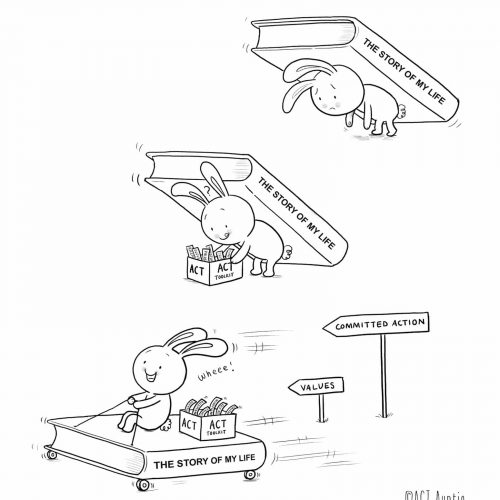Anxiety and I
Many people struggle with anxiety. It is often a life-long relationship that starts when we are young, although some people may start experiencing anxiety later in life, for example, after something difficult happens in our lives.
I first became aware of anxiety in my teenage years. I remember worrying about whether I would or had made a mistake, whether I had upset people, that something bad would happen to me or that something bad would happen to people I cared about, I worried about homeless people, the elderly, people who were sick, people who lost their jobs (or may lose their jobs); and I worried about the future, my future, my family’s future, the world’s future. I spent a lot of time worrying about having made the right decision buying the black instead of grey top, or studying psychology, anything was a reason to worry, no matter how big or small.
What if?
It would generally start with a brief, seemingly harmless thought- what if I had made a mistake? What if I didn’t pass the exam? And it would trigger a sequence of thoughts that could last from hours to days, where I would see myself in the worst-case scenario. If the worry was about making a mistake at work, on my mind, I pictured people looking at me and judging me, or jobless. If the worry was about upsetting people, I would see an image of myself as an elderly woman, alone. If I experienced pain for a few days, I’d see images all sorts of serious health conditions on my mind.
So my life has been full of terrible, life-threatening, scary, embarrassing moments…that actually never happened. Although it felt like they did!
The road to overcome anxiety
About 6 years ago, I came across Acceptance And Commitment Therapy (ACT), a type of CBT which is considered a 3rd wave CBT, with some adjustments to the more traditional CBT.
The most important thing I learned from ACT was to connect with my values and what is important to me. It helped me to see why it was worth putting myself out there to pursue a goal or seek an experience.
I also reflected on how the best experiences and achievements in my life have come from taking on challenges and facing the difficult feelings and thoughts that came with those challenges- “you can’t do it”, “you’re not good enough”, etc.
Through ACT, I learned that if I made space for those difficult feelings and unpleasant thoughts, I could still do the things that matter to me, and that after a while, these feelings and thoughts were not as unpleasant or difficult.
By using skills that I call drop the anchor, I learned that I can unhook myself from these feelings and thoughts, so that I don’t feel as overwhelmed by them and I can make decisions that will take me in the direction that matters to me, even if those thoughts and feelings show up.
Anxiety's "advice"
If I had followed anxiety’s “advice” to avoid anything new or scary, I wouldn’t have moved from to the UK from Spain, and I wouldn’t have dived in the sea with dolphins and turtles, and I wouldn’t have walked the Caminito del Rey (Malaga, Spain), which is not for the faint-hearted!
What is making room for anxiety?
It took me time and practice to learn to “make room” for difficult thoughts and feelings. You just don’t want them when they are here!
I started by practising some exercises to help me unhook from the thoughts and feelings, to accept that they were there, to acknowledge that they often had a message for me that came from a good place. For example, that I worry because I care about others. That I worry about making mistakes because I like things well done. Or that I worry about the future because I would like the world to be a better place for everybody.
The "happy ending"
I now sit next to my anxiety, I listen to what it has to say, I say thank you for the advice. And what I have noticed is that Anxiety now sits (more or less) quietly next to me, and watches me take the steps I want to take, to do the things that are important to me. It still squirms and wriggles, but it is not as noisy, annoying and heavy-handed as before.
I cannot say that I don’t experience anxiety anymore, but now I’m the one who sits in the driver’s seat!
And you, are you ready to change your relationship with Anxiety?
Book a free chat to discuss how I can help you overcome your anxiety.
By Lola Perez-Gavino



